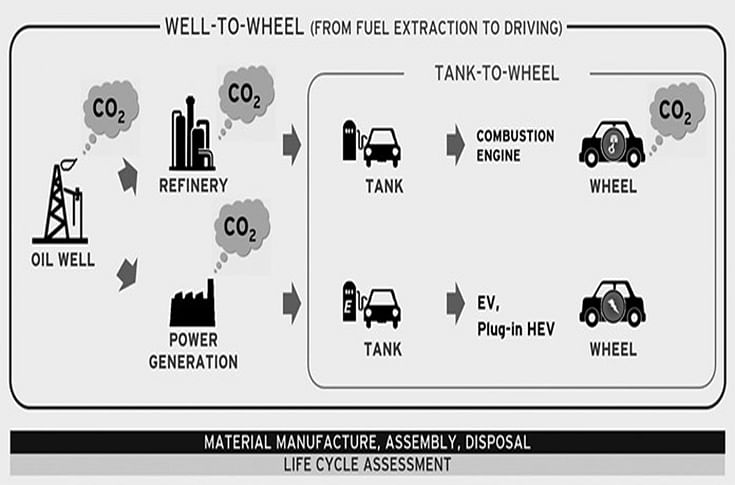Mazda, Saudi Aramco and AIST to collaborate for reducing CO2 emissions
Their aim is to develop advanced engine/fuel combinations with improvements in engine efficiency and CO2 reductions assessed from a well to wheel basis.
Mazda Motor corporation has announced the start of a joint research project with Saudi Aramco, the state-owned oil company of the Kingdom of Saudi Arabia, and Japan’s National Institute of Advanced Industrial Science and Technology (AIST) to make internal combustion engines (ICE) more efficient and for reducing carbon dioxide emissions as assessed from a well to wheel basis. The research topic focuses on developing a low-carbon fuel along with research into internal combustion engines that use the fuel.
Within this project, Saudi Aramco will develop a fuel based on a refinery process that results in lower carbon dioxide emissions. Mazda and AIST will research and develop a high-efficiency engine that will run on this fuel. Mazda’s contribution will be a high-efficiency advanced prototype engine based on their SKYACTIV technologies. The entire scope of research will be tested and optimised at AIST headquarters in Tokyo. The program consists of a thorough CO2 assessment through refinery modelling, engine testing, spray diagnostics, and computational fluid dynamics simulations. The anticipated benefit of this approach is a holistic view of the ICE’s environmental impact.

Saudi Aramco supports Gasoline Compression Ignition (GCI) technology as a viable development route to achieving high fuel efficiency with low emissions and new fuel formulations to further complement this engine concept. The GCI concept, which is Saudi Aramco’s flagship project within this research program, is expected to enable 25-30 percent reduction in CO2 as compared to conventional gasoline spark-ignition engines. Mazda’s advanced prototype engine is based on a compression ignition engine with ultra-lean burn combustion.
The GCI fuel has a lower carbon content and higher heating value than commercial diesel and gasoline fuels. The lean burn engine emits lower CO2 than conventional gasoline engines. The companies expect that the combination of the engine and fuel technologies will deliver substantial savings in well-to-wheel CO2 emissions.
Mazda, AIST and Saudi Aramco believe that this new collaboration will showcase the ICE platform’s abundant potential for cost-effective efficiency improvement and reduced GHG emissions. The joint work is expected to be completed in fiscal 2020.
Also read: Mazda's new IC engine that rivals EVs
Maharashtra to get a mega refinery from Saudi Aramco and Indian Consortium
RELATED ARTICLES
Sept 2024 From R&D incentives to EV infrastructure: What auto components industry expects from Budget 2024
Sept 2024 From R&D incentives to EV infrastructure: What auto components industry expects from Budget 2024
US car majors hit the brakes on driverless cars
Ford Motor and Volkswagen to close self-driving startup Argo AI, due to lack of technology and clear regulations.
Autoliv and Geely to develop advanced safety tech for future vehicles
Scope of cooperation includes safety for high-level autonomous driving, intelligent steering wheel technology, a 360deg ...







 By Autocar Pro News Desk
By Autocar Pro News Desk
 08 Aug 2018
08 Aug 2018
 3683 Views
3683 Views









